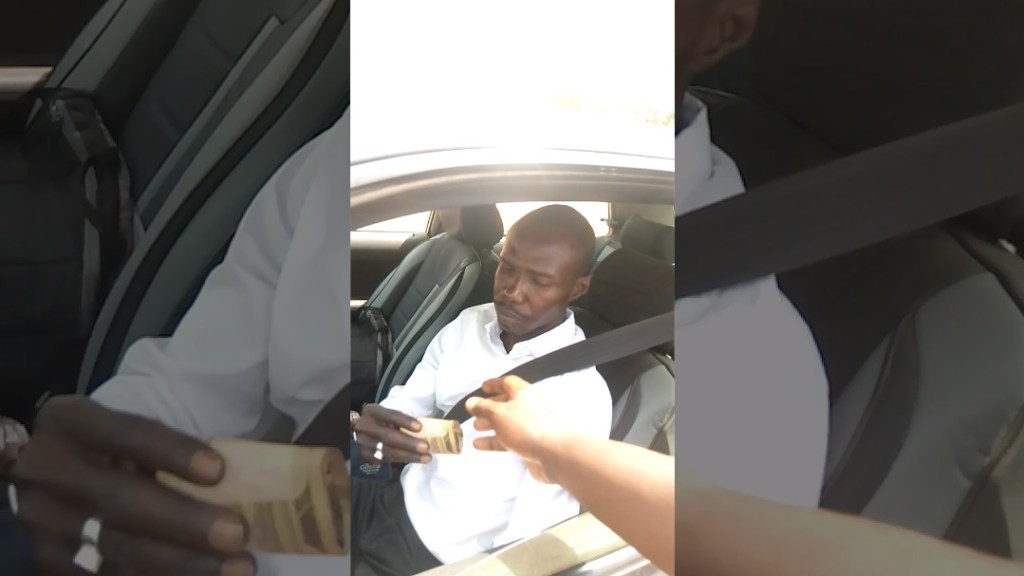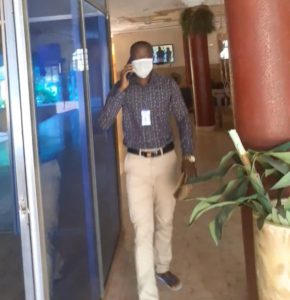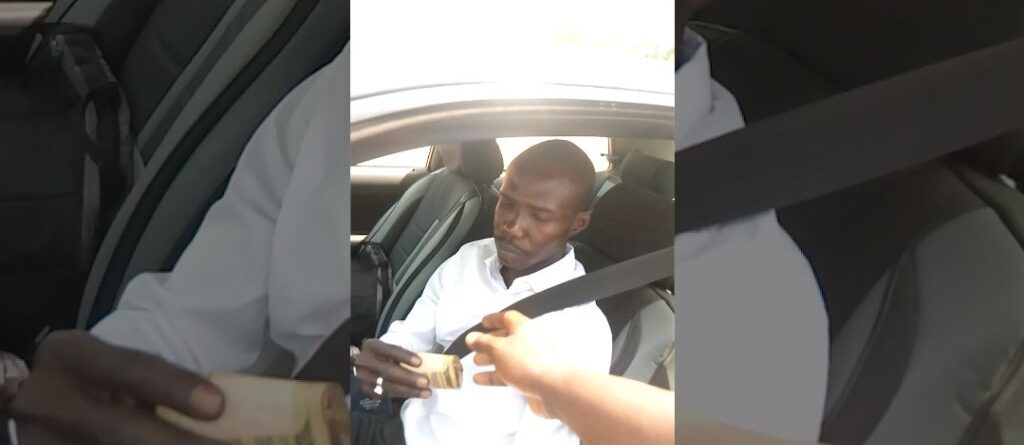Profiting From Pandemic: Coronavirus Test Results For Sale In Gambia
By Mustapha K. Darboe
The Gambia, like all other countries of the world, has been hit by the global coronavirus disease (COVID-19) pandemic. In response, the government introduced some measures including testing for the virus before any international travel. The international travel regulation required all travellers to have negative COVID-19 test results before they could leave the country. However, with that has come frustrations, deepened by the inefficiencies in the COVID-19 testing process.
As a result, some Gambian health professionals have found a new business venture. The product: negative COVID-19 results. And the price is determined, among other things, by the buyer’s nationality and ability to bargain.
The Gambia, like all other countries of the world, has been hit by the global coronavirus disease (COVID-19) pandemic. In response, the government introduced some measures including testing for the virus before any international travel. The international travel regulation required all travellers to have negative COVID-19 test results before they could leave the country. However, with that has come frustrations, deepened by the inefficiencies in the COVID-19 testing process.
As a result, some Gambian health professionals have found a new business venture. The product: negative COVID-19 results. And the price is determined, among other things, by the buyer’s nationality and ability to bargain.
“If it is Westerners, I charge a lot of money. But for Gambians, I just charge them 2,500 dalasi,” said Lamin Sanneh, a laboratory technician at the National Public Health Laboratory (NPHL). The amount charged is equivalent to 50 US dollars.

The NPHL is the only government facility where blood samples collected at collection points across the country are screened for COVID-19. The results are also processed and printed there.
Unknown to him, the lab technician was talking to an undercover journalist who was following the story of COVID-19 result buying. Sanneh was identified as one of the ‘big guys’ in the business. The journalist posed as a traveller to Senegal who needed two COVID-19 negative test results, one for him and the other for a colleague, without being tested.
“If I do not collect your [blood] sample, it involves some other people,” Sanneh said, essentially explaining that the process of getting a negative result for those who are not tested involves other colleagues he works with; it is a network.
The bargaining on the phone continues: “I will make it for you D2,000 each. I cannot come down because D1,000 [out of the D2,000] is already going to someone else.” They eventually settled for D1,500 for each of the two.
On March 3, a sunny Wednesday afternoon, the journalist met with the lab technician at the road intersection leading to NPHL from the Bertil Harding Highway. He took the D3,000 and handed the two results to the journalist.
“They [the results] are from the National Public Health Laboratory. I work there,” Sanneh said. And when the results from Sanneh were compared to results given to others from the NPHL, they were the same – exactly as the NPHL prints them out and carrying its stamp on them too.
For Sanneh, selling COVID-19 results is big business. He sold the results to several people. In one of his conversations with the undercover journalist, he said it was difficult for him to know how many people he sold the results to, an indication of his huge clientele base.
To confirm that Sanneh’s deal with the journalist was not just an isolated incident, the reporter asked another person to go to the lab technician for the same purpose: to buy negative test result. This person was supposed to be travelling to the United States. After some bargaining, the agreed price was D2,000 for the result.
At the same place Sanneh met the journalist, he met with the purported US-bound traveller and handed him the COVID-19 result and collected his money. Like the previous two results, this one was also authenticated by a stamp from the NPHL and signed.
And in Sanneh’s own words, “one or two people will be involved [at the NPHL] to make sure the whole process does not fail.”
But when contacted for comment, the lab technician denied ever selling the result.
“How am I selling negative result to people without getting them tested,” he asked rhetorically. “I don’t think I do such things. I conduct test for people, but to sell negative result to them without testing, no.”

There is another Lamin, too
Lamin Sanneh may be ‘the big guy’ in the business, but he was not the only Lamin in the venture. There was Lamin Nyassi, too. This Lamin does not work at the lab where COVID-19 tests are done like Lamin Sanneh, but he used to oversee a quarantine centre.
On a hot sunny afternoon in August 2020, our undercover reporter met with Mr Nyassi at the Golden Beach Hotel in Kololi which was then being used as a quarantine centre. Those in quarantine there were mainly travellers from Western countries.
After some prior arrangement, the journalist went to the quarantine centre to supposedly collect two COVID-19 negative results for his brother and the wife. The two were supposed to travel to the US, and they wanted negative results but did not want to take the tests.
After about five minutes of waiting at the hotel reception, Nyassi showed up wearing a facemask and holding an A4 size envelope in his left hand. He walked the journalist into a small glass room, not too far from the hotel reception. In this room, there was a table and two chairs.
“This is just like a copy of them [the results]. We need to put it in the system but there is no problem with it,” Nyassi told the journalist, as he handed over the results. The names, passport numbers and other details, which were supplied to the doctor before, were crosschecked and confirmed.
“I have only one grand (D1,000). It is not much,” the journalist said to trigger a discussion about the price. “No problem, I just want to help you. I know you cannot get it [results without being tested],” Mr Nyassi replied.
Although Nyassi’s emphasis was on helping the traveller, he took the D1,000. The person who shared Nyassi’s telephone number with the undercover journalist also claimed to have known someone who bought the results from him – Nyassi.
Like Lamin Sanneh, Lamin Nyassi also denied selling any COVID-19 result.
However, when he was confronted with the facts, he confessed, saying: “To be candid, I don’t sell Covid results. This person came to me for assistance so I personally wanted to assist him. Even if you ask the person, he will tell you I did not charge him money, between me and Allah. He personally, voluntarily gave me the money.”
First police bust?
With ease of international travel restrictions and the strict requirements for a negative COVID-19 result to fly, the demand for negative results rose and more health professionals began to join the illegal trade to increase supply.
There were allegations that one Saidou Ceesay, a nurse at Serrekunda General Hospital, the second biggest hospital in the country, was also in the business.
“My wife bought [the result] from him two times. My friend also bought from him two times… I also met two other travellers at his residence when I went there to pick up the results,” said a person who reported that he had bought the result from Ceesay.
Perhaps unlucky, Ceesay was later arrested and detained by police for allegedly selling negative COVID-19 test results to people without taking their samples and testing them.
On March 12, the undercover reporter made contacts with Ceesay. Posing as a result buyer, the journalist requested if Ceesay could get him a negative COVID-19 test result without taking his sample.
Ceesay replied in a WhatsApp chat: “Sorry brother, am (sic) just from a big problem about this COVID results issue, just helping, I spent three days in a cell.”
Dr Mustapha Bittaye, the director of health services, confirmed Ceesay’s arrest, adding that the police were investigating his case.
“The police should continue their job and find out what is the fact,” he said.
Dr Bittaye said they have received complaints from people about COVID-19 result selling, but they had no proof.
“It is difficult to get the evidence. Once we get the evidence, we will act,” he said.
How to cheat COVID-19 testing protocols
The polymerase chain reaction (PCR) test is the most accurate test for diagnosing COVID-19, according to scientists.
A former staff of the Medical Research Council, Ahmed Manjang, a micro-biologist, explained how lab technicians or any health professional could tamper with the testing process to get a predetermined result: “If you turn up in a lab and you don’t want to be tested positive for COVID-19, even if you are positive, all that the lab technician does is, in the testing process, to replace your collected blood sample with water and run the test.
“They could also use a blood sample that had previously been tested negative and run that for another person just to get a negative result for that person.”
Manjang, who had worked in a hospital in Saudi Arabia, said the behaviour of the health workers in tampering with the testing process could discredit The Gambia’s COVID-19 PCR test results internationally.
“If the scheme is realised internationally, our result will never be respected,” he said.
Besides, Manjang said, that endangers the lives of those who come into contact with people who were given negative test results when in fact they may be positive.
“This pandemic is not a joke. The consequences it could have on the health of the locals could be devastating because that particular guy who never turns up in your lab and you give him a negative result could be positive. That means the person could be spreading the virus,” he added.
The Gambian Ministry of Health announced its first confirmed case of COVID-19 in the country on March 17, 2020. The country as at March 26, 2021, has recorded 5,303 cases with 161 deaths, according to the Johns Hopkins University Coronavirus Resource Centre.

